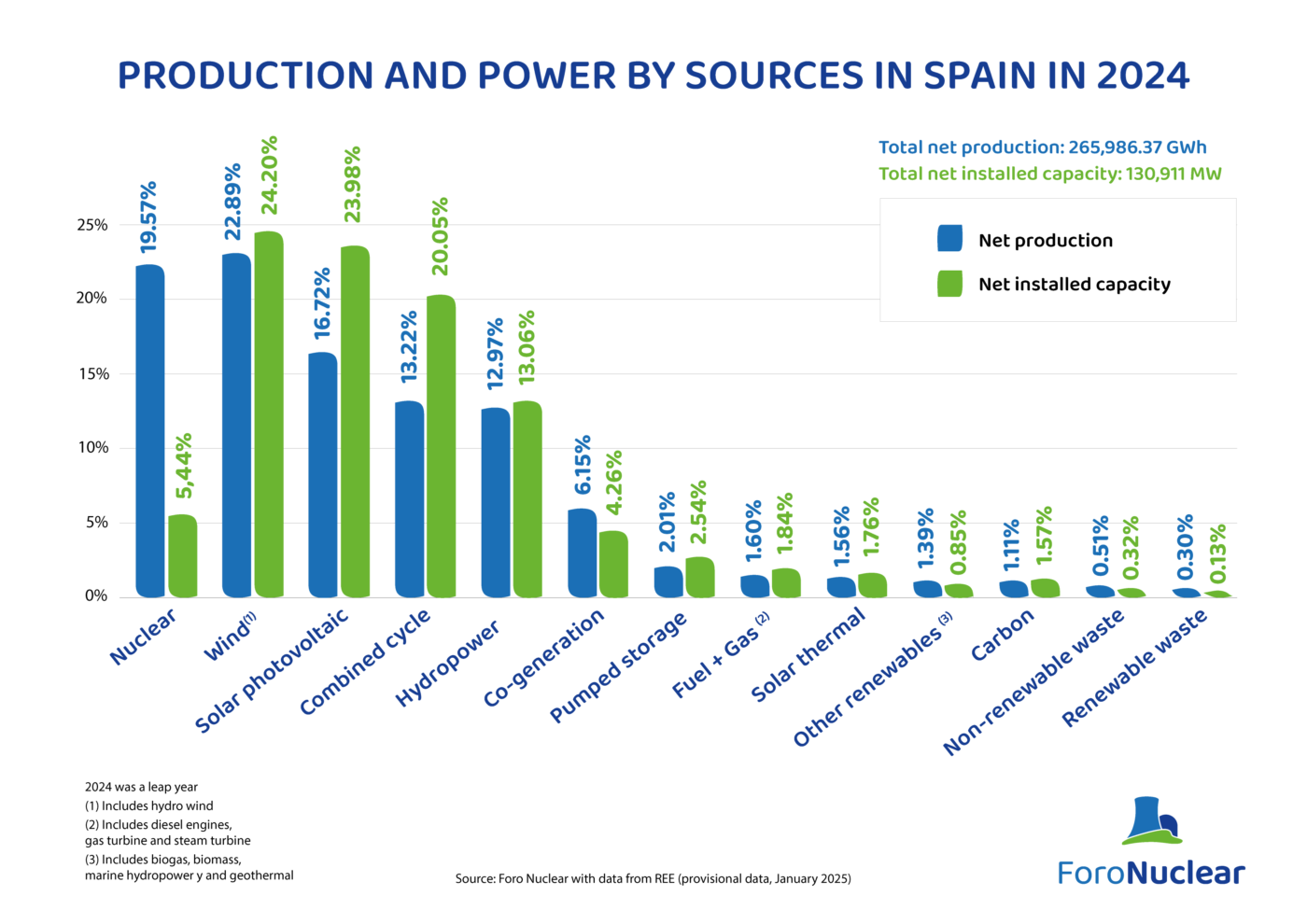World Nuclear Association Highlights Concerns Over Spain’s Energy Future
In recent weeks, Spain has witnessed significant national discourse on the role of the Spanish nuclear fleet which has motivated many open conversations on its nuclear energy strategy. Leading the discussion is World Nuclear Association Director General, Sama Bilbao y León, who participated in the 22 IESE Energy event and Colegio Oficial de Ingenieros Industriales de Madrid (COIIM) in Madrid on 19 February, and at The Spanish Association of Industry & Commerce, CEOE, event "Nuclear Energy, key to the energy transition", on March 20th. Dr Bilbao y León raised concerns for Spain’s economy should it continue policy of phasing out nuclear power in the country, whilst promoting the benefits that nuclear energy offers as a clean, reliable, always-on power source.
World Nuclear Association Perspective on Spain's Nuclear Phase-Out
In Madrid, Sama Bilbao y León expressed concerns regarding Spain's plans to decommission its nuclear power plants, which is scheduled to start in 2027, with a complete shutdown anticipated by 2035. She emphasized that such a move could jeopardize the nation's economic stability, stating,
"I am concerned about Spain’s economic future without nuclear energy. Progress and socioeconomic development require abundant, clean, and affordable energy, available every day, all year round. Nuclear power provides exactly this, and major energy consumers around the world—heavy industry, the chemical sector, transportation, artificial intelligence—are increasingly turning to it.”
Bilbao y León underscored the indispensable role of nuclear power in providing continuous, clean, and economical energy, which is vital across the global economy.
Economic Implications of Abandoning Nuclear Energy
The potential economic impact of shutting down nuclear facilities extends beyond energy supply concerns. The Trillo Nuclear Power Plant, for instance, has highlighted the financial strain imposed by high taxation, with annual taxes amounting to over 45% of its total costs. Such fiscal pressures threaten the viability of nuclear operations, an integral part of the Spanish energy mix. In 2024 nuclear generated around 20% of Spain's electricity, from just 5% installed net power capacity as Spanish nuclear power plants operated at full power over 80% of the hours – the highest equivalent full-power operating hours of all technologies. Nuclear's high capacity factor provides secure reliable low carbon energy.

Calls for Policy Reassessment
In light of these challenges, industry leaders are advocating for a re-evaluation of Spain's energy policies. Ignacio Araluce, the current head of Foro Nuclear, emphasized the necessity of nuclear energy for ensuring a stable electricity supply and supporting the local economy. He questioned the current plan to phase out nuclear power, arguing that it could lead to higher electricity costs and reduced competitiveness.
Even Spain’s largest renewable supplier, Iberdrola, is in favour of keeping nuclear plants operating. Speaking during World Economic Forum in Davos, Iberdrola's Executive Chairman, Ignacio Galán, said "We have proven, at least with the nuclear power plants that are already in operation, that they are safe, efficient and absolutely necessary to keep the lights on at a time when new demand is growing, like data centres that require stable supply 24 hours a day, seven days a week,"
Global Trends in Nuclear Energy
The global energy landscape further contextualizes Spain's internal debate. Many countries are extending the operational lifespans of existing nuclear reactors to meet rising low-carbon energy demands in a cost effective manner. Efforts are underway across the world to extend nuclear power plants lifetime operations, reflecting a broader trend of maximizing the carbon-free energy generated by existing nuclear infrastructure. For example, lifetime operation extensions are taking place in Brazil, Japan, Sweden, and the UK, as well as the restart of reactors in the USA.
World Nuclear Association’s input into Spain's nuclear energy discussion highlights critical considerations about energy security, economic stability, and environmental commitments. As Spain deliberates its energy future, balancing these factors will be essential to ensure sustainable progress.